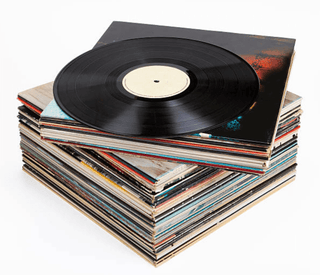Nathalie Joachim- Ki Moun Ou Ye

2024 release. The second album from Grammy-nominated Haitian-American singer and composer Nathalie Joachim, Ki moun ou ye, is available via the partnership between Nonesuch and New Amsterdam Records. Across the record's ten intimate, original songs, Joachim ponders it's title's question: "Who are you?" Inspired by the remote Caribbean farmland that her family continues to call home after seven generations, Ki moun ou ye travels deeper into the Haitian heritage introduced on Joachim's Grammy-nominated 2019 New Amsterdam release, Fanm d'Ayiti. Performed in English and Haitian Creole, the work examines the richness of the human voice-an instrument that brings with it DNA, ancestry, and identity-in a vibrant tapestry of Joachim's voice and intricately sampled vocal textures, underscored by Joachim's flute playing, violin from Yvonne Lam (Eighth Blackbird), and drums by Jason Treuting (So Percussion). Ki moun ou ye explores Joachim's personal history while highlighting her voice's role as a tool for survival, healing, preservation of self, fellowship, and an affirmation of freedom
> Due to the current limited nature of music titles, ALL CD & Vinyl purchases are limited to THREE copies per customer, per item. If you place multiple orders for multiples the same title, your subsequent orders will be canceled.
2024 release. The second album from Grammy-nominated Haitian-American singer and composer Nathalie Joachim, Ki moun ou ye, is available via the partnership between Nonesuch and New Amsterdam Records. Across the record's ten intimate, original songs, Joachim ponders it's title's question: "Who are you?" Inspired by the remote Caribbean farmland that her family continues to call home after seven generations, Ki moun ou ye travels deeper into the Haitian heritage introduced on Joachim's Grammy-nominated 2019 New Amsterdam release, Fanm d'Ayiti. Performed in English and Haitian Creole, the work examines the richness of the human voice-an instrument that brings with it DNA, ancestry, and identity-in a vibrant tapestry of Joachim's voice and intricately sampled vocal textures, underscored by Joachim's flute playing, violin from Yvonne Lam (Eighth Blackbird), and drums by Jason Treuting (So Percussion). Ki moun ou ye explores Joachim's personal history while highlighting her voice's role as a tool for survival, healing, preservation of self, fellowship, and an affirmation of freedom
> Due to the current limited nature of music titles, ALL CD & Vinyl purchases are limited to THREE copies per customer, per item. If you place multiple orders for multiples the same title, your subsequent orders will be canceled.



![Lana Del Rey- Did You Know That There’s A Tunnel Under Ocean Blvd [Light Green 2LP/Alt. Cover] (Indie Exclusive) (PREORDER) - Darkside Records](http://darksiderecords.myshopify.com/cdn/shop/products/uqhiqyilyv8qxgmazwkg.jpg?v=1731305492&width=320)


